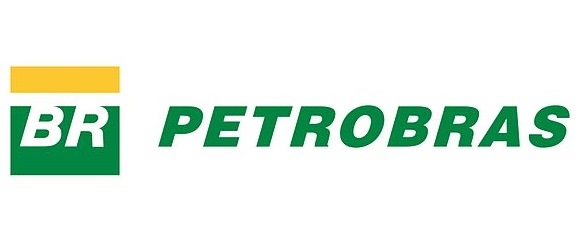Petróleo Brasileiro S.A. (NYSE: PBR), or Petrobras, has seen a double-digit gain on Tuesday. The move is on reports of rumors that the company’s president will resign or be replaced. 24/7 Wall St. would view the news as good, but this comes with some serious caveats — and the reminder that Petrobras, regardless of who is CEO, is quite simply not in charge of its own destiny in the same fashion that other oil giants are.
The news report from the local Folha de Sao Paulo newspaper said that Brazilian president Dilma Rousseff is set to replace Grace Foster as president of Petrobras. It also said that a PricewaterhouseCoopers report includes a recommendation to replace directors. Foster and Rousseff are said to be friends, but in some instances that might not be enough to thwart internal or external pressure for change.
24/7 Wall St. wants to remind readers that Brazil mandates prices that Petrobras can charge to the public in Brazil. In short, this is not a traditional oil and gas giant that makes money based on supply and demand forces of the global market pricing.
ALSO READ: BP Earnings Show It Is a Likely Survivor
Another risk is that the current pricing trends might actually be in favor of Petrobras. The question here though is whether it lasts. After all, the Brazilian government could use the lower oil price assumptions to demand that Petrobras charges less than the current rate. Let’s just say that it would not be good for Petrobras if oil prices were to rise after that.
Petrobras is also heavily in debt, and the current scandals around the company and its management have created more distrust. The latest earnings report did not define the financial impact from the company not disclosing the costs and projected impact from the corruption scandal.
A last reminder is that Petrobras has a different organizational and capital structure than traditional giants. The government gets to dictate prices, and shareholders are effectively ranked lower than the employees. Then there is the huge preferred share group as well. In short, it is complicated. The end result is that the common Petrobras shareholders are just not as well served by the structure as they are in traditional oil and gas giants in North America.
Another note caution has just come out. Fitch Ratings downgraded Petrobras to BBB- and has the Brazilian oil giant on a negative credit watch.
Fitch Ratings downgraded the foreign and local currency Issuer Default Ratings and the outstanding debt ratings to BBB- from BBB. Fitch also has placed all Petrobras international and national scale ratings on Rating Watch Negative.
ALSO READ: Merrill Lynch’s 5 Large Cap Energy Stocks to Buy Now
What investors need to consider is that the Fitch downgrade covers a whopping $50 billion or so of issued and outstanding debt, when you include its guarantees for the debt of PIFCO and PGF. Fitch said in the downgrade:
The downgrade reflects the increased and prolonged uncertainty regarding Petrobras’ ability to estimate and record an adjustment to its fixed assets in a timely manner, which could allow a significant portion of Petrobras’ creditors to accelerate debt payments. Petrobras’ third quarter financial statements, while allowing it to comply with covenants, did not include any adjustments to fixed assets. The lack of clarity prolongs the uncertainty surrounding the company’s ability to make the necessary adjustments to comply with covenants that require it to report audited year-end financials within 120 days of the period’s end, plus a 60-day grace period. Without audited financials, the company lacks access to debt capital markets. The decision to delay the recording of an impairment highlights the difficulties of estimating the magnitude of the corruption overpayments and fair value of fixed assets.
Fitch also believes the current price difference between domestic products and international markets is unsustainable in the long term. The ratings agency expects the differential to erode over time, and this would eliminate temporary trading gains. Another issue is that growing production is said to remain strategic for Petrobras to have a strong balance sheet in the long term. Fitch said:
Petrobras currently benefits from low international oil prices as the company is a net importer and it has not revised downwards domestic gasoline and diesel prices.
Other ratings issues have been brought up in recent days and weeks, and not favorably.
ALSO READ: Short Sellers Pounce on Major Oil and Gas Stocks
American depositary shares of Petrobras were up 9.5% at $7.02 in New York trading by mid-afternoon on Tuesday. Its 52-week range is $5.79 to $20.94. The long and short of the matter is that moves of this sort are very impressive, when those gains are at the whim of far more than traditional supply and demand metrics and operational metrics of the other major oil and gas giants.
Travel Cards Are Getting Too Good To Ignore (sponsored)
Credit card companies are pulling out all the stops, with the issuers are offering insane travel rewards and perks.
We’re talking huge sign-up bonuses, points on every purchase, and benefits like lounge access, travel credits, and free hotel nights. For travelers, these rewards can add up to thousands of dollars in flights, upgrades, and luxury experiences every year.
It’s like getting paid to travel — and it’s available to qualified borrowers who know where to look.
We’ve rounded up some of the best travel credit cards on the market. Click here to see the list. Don’t miss these offers — they won’t be this good forever.
Thank you for reading! Have some feedback for us?
Contact the 24/7 Wall St. editorial team.




